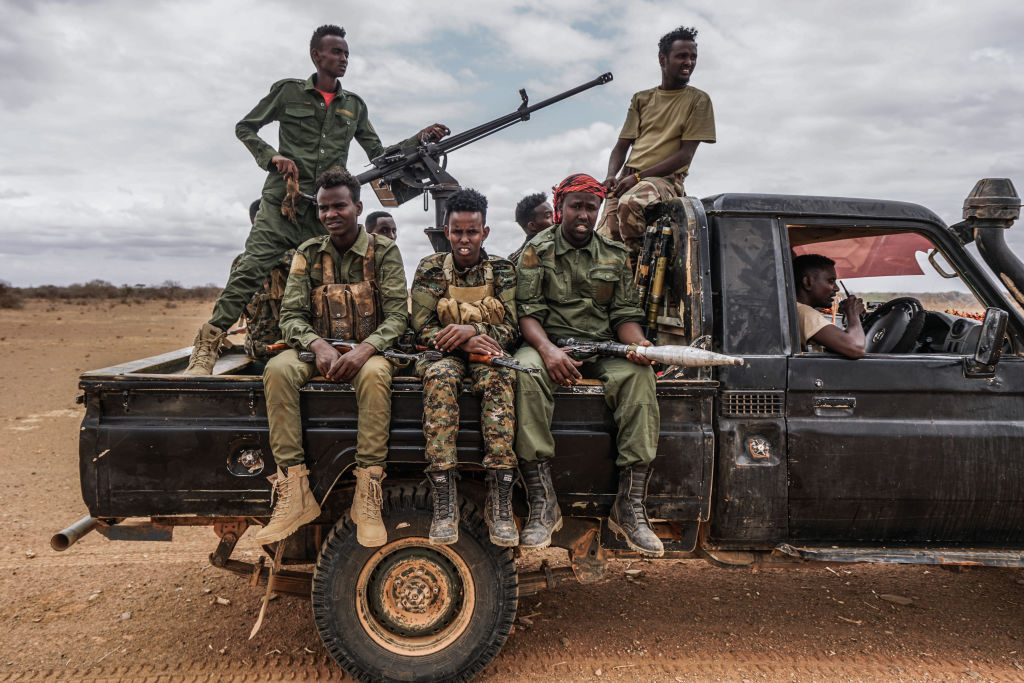ADF STAFF
Somali President Hassan Sheikh Mohamud made it clear after winning a second term last year that defeating al-Shabaab is the government’s main priority. The terrorist group has indiscriminately killed civilians, battled government forces and held swaths of territory since 2006.
Mohamud called for the increased mobilization of local militias known as “Ma’awisley” to complement operations by Somali forces, the African Union Transition Mission in Somalia (ATMIS) and other allies.
“You are either with us or with al-Shabaab, and there can be nothing in between,” Mohamud said in a televised address.
The government provides clan militias with logistical support, ammunition, food and medical evacuations. The clans connect the army to the local populations and demonstrate that parts of Somalia’s populations have turned against al-Shabaab, according to the International Crisis Group.
Mohamud’s communications, directives and stated commitment to “total war” against al-Shabaab “is starting to win the confidence of the major clan elders and their communities as well as international partners,” according to Liban Obsiye and Liban Hussein in an article published in African Arguments.
“This strengthening partnership is what is sustaining the fight and delivering one victory after another on the battlefield,” Obsiye and Hussein wrote.
Mohamud’s call to action yielded immediate results.
The first offensive against al-Shabaab was focused in the Middle Shabelle region, which surrounds the national capital, Mogadishu. During that effort, which ran from August 2022 to January 2023, the Somali Army liberated 70 communities such as Rage-El, a village in which residents joined the army’s fight last August after 13 years under al-Shabaab.
The offensive reclaimed about one-third of the territory controlled by al-Shabaab. The Somali government also reported that 3,000 militants were killed in the first phase of attacks and more than 3,700 others were wounded with help from “Ma’awisley” fighters, some of whom are elderly.
“The public were always ready to fight al-Shabaab,” Kamal Dahir Hassan Gutale, national security advisor to Prime Minister Hamza Abdi Barre, said in a Voice of America report. “What is different this time is the government, the president and the prime minister have started to encourage them and stand with them when the community decided to mobilize.”
As Somali troops and their allies liberate communities from al-Shabaab, Mohamud has emphasized the government’s commitment to stabilizing and bringing public services to those areas to fend off extremists’ return. The second wave of operations will be conducted in Jubaland and Southwest states.
ATMIS has about 18 months left before handing over full security responsibilities to Somali security forces. Observers believe the ability of the Somali military to preserve gains will be a referendum on the success of the AU missions. They also warn that al-Shabaab is far from defeated.
“This is going to be the litmus test on how effective AMISOM [African Union Mission in Somalia] and ATMIS have been,” wrote Musaazi Namiti for the Ugandan newspaper The Monitor. “Al-Shabaab may have suffered many defeats over the past 16 years, but it remains a highly organized militant group, and the security forces will have to double their efforts.”

